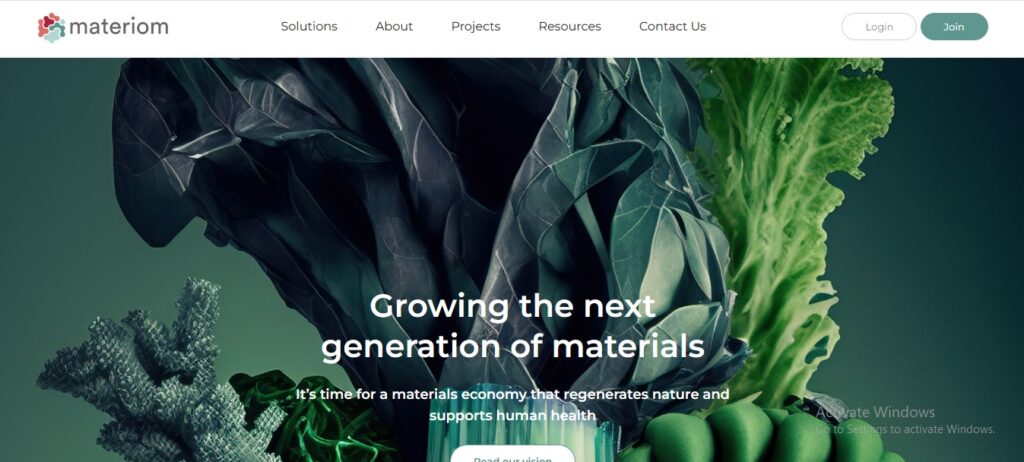Materiom: Accelerating Biomaterials R&D with Open Data and AI
Materiom is an innovative platform accelerating the development and adoption of biomaterials.
Description
Materiom is an innovative platform accelerating the development and adoption of biomaterials. By providing open-access data, AI tools, and a collaborative community, Materiom empowers scientists, designers, and businesses to create sustainable and high-performing materials derived from nature. This contributes to a circular economy and reduces reliance on environmentally harmful synthetic materials.
Unique features:
- Open-access biomaterials database: Offers the world's largest database of biomaterial recipes, providing detailed information on ingredients, processes, and properties.
- AI-powered material design: Utilizes machine learning to predict and optimize biomaterial properties, accelerating the R&D process.
- Collaborative community: Connects a global network of researchers, designers, and businesses to foster collaboration and knowledge sharing.
- Sustainability focus: Promotes the use of bio-based materials to reduce environmental impact and transition to a circular economy.
- Educational resources: Provides workshops, tutorials, and educational materials to support biomaterial research and development.
How Materiom works:
- Explore the database: Access and analyze a vast collection of biomaterial recipes and data.
- Utilize AI tools: Employ machine learning models to predict and optimize material properties.
- Collaborate with the community: Connect with experts, share knowledge, and participate in collaborative projects.
- Develop and test biomaterials: Use the platform's resources to design, create, and test new biomaterials.
- Contribute to the database: Share your own research and contribute to the growing knowledge base.
Key features and functionalities:
- Extensive biomaterials database with detailed recipes
- AI-powered material design and optimization tools
- Collaborative platform for knowledge sharing
- Educational resources and workshops
- Data visualization and analysis tools
- API access for data integration
Use Cases and Examples:
Use Cases:
- Developing sustainable packaging: Creating bio-based alternatives to conventional plastic packaging.
- Designing innovative bio-composites: Developing high-performance materials for construction, automotive, and other industries.
- Creating bio-based textiles: Producing sustainable and biodegradable fabrics for the fashion industry.
- Advancing bio-fabrication: Exploring new methods for 3D printing and manufacturing with biomaterials.
- Promoting circular economy: Developing materials and processes that minimize waste and environmental impact.
Examples:
- A packaging company uses Materiom to find a bio-based alternative to polystyrene foam for protecting electronic products.
- A research lab utilizes Materiom's AI tools to optimize the properties of a bio-composite for use in building construction.
User Experience:
While Materiom focuses on biomaterials R&D, its design and features suggest a user experience that prioritizes:
- Accessibility: The open-access database and user-friendly interface make it easy for anyone to explore and utilize biomaterial information.
- Collaboration: The platform fosters a strong community and encourages knowledge sharing among researchers, designers, and businesses.
- Sustainability: Materiom promotes environmentally responsible practices and supports the development of sustainable materials.
Pricing and plans:
Materiom is a non-profit organization and provides free access to its database and core functionalities. They also offer premium features and services for businesses and organizations.
Competitors:
- Biomimicry Institute
- AskNature
- Biomaterials Network
Unique selling points:
- Open-access database of biomaterial recipes
- AI-powered material design and optimization tools
- Strong community focus and collaborative platform
Last Words: Join the movement towards a sustainable future with Materiom. Visit their website today to explore the world of biomaterials and contribute to the development of innovative solutions for a circular economy.
